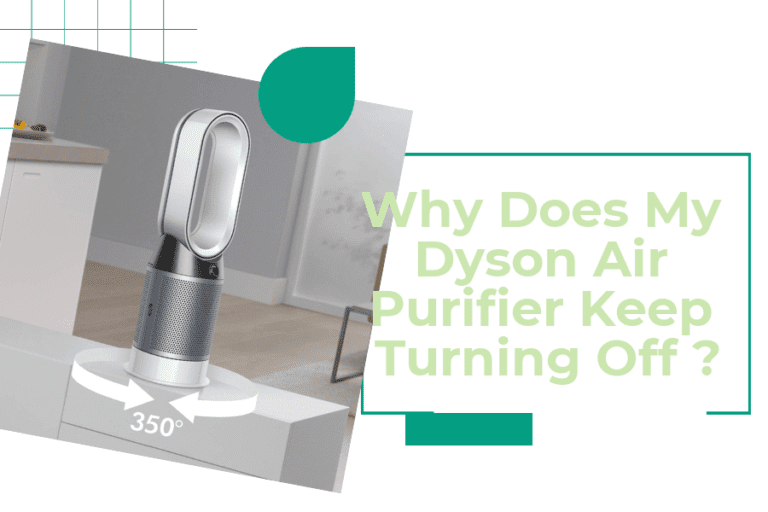How to Make Your Dog Smell Good: Simple Steps for a Fresher Pup
Maintaining the freshness and cleanliness of our dogs is not just about keeping them visually presentable; it’s also essential for their health and comfort, as well as ours. Unpleasant dog odors can permeate our living spaces and become challenging to manage. We understand that dog owners cherish the companionship of their pets and want to ensure they remain a pleasant part of the household. This article addresses ways to reduce or eliminate dog odors effectively, combining grooming, diet, and home remedies.

We can take proactive steps to understand why our dogs might develop less-than-fresh odors. Ensuring that our furry friends smell good involves more than just the occasional bath. It encompasses a range of practices including regular grooming, attention to diet, and the use of natural deodorizers. Seeking professional advice for persistent odors can also lead to tailored solutions that enhance our dog’s overall well-being.
Key Takeaways
- Adopting consistent grooming practices contributes greatly to reducing dog odors.
- A well-balanced diet prevents odors from within and supports skin and coat health.
- Integrating natural solutions can effectively maintain a clean and fresh-smelling dog.
Understanding Dog Odor
In tackling dog odors, it’s imperative to understand the root causes. Effective solutions require a deeper look at the nature of dog smell, the impact of their skin health, and the role of diet.
Causes of Dog Smell
Most odors emanate from bacteria and yeast thriving on a dog’s skin. Our furry friends produce oils that, while natural and healthy, can also trap dirt and debris. This environment can become a breeding ground for microbes, resulting in that familiar ‘dog odor’. Additionally, various secretions, such as those from the anal glands, contribute to the overall body odor.
- Natural Oils: Traps dirt and sustains microbes.
- Anal Gland Secretions: Distinct and potent contribution to body odor.
Furthermore, our dogs explore the world with their noses and aren’t afraid to roll in smelly substances, which adds to the challenge.
Skin Conditions and Odors
A dog’s skin health is a barometer for their overall well-being. Skin conditions, which range from temporary allergies to chronic diseases, can influence their scent. An underlying skin infection can produce a distinctly unpleasant odor. These odors may signal a health issue requiring veterinary assistance.
- Allergies: Can result in itchy skin and secondary infections.
- Skin Infections: Often marked by a strong, foul odor.
If our dog’s skin appears irritated or smelly, it’s time to examine their health more closely.
Importance of Diet on Odor
What we feed our dogs has a direct impact on their digestion and, consequently, their body odor. A balanced diet supports a healthy gastrointestinal system, which in turn can help mitigate issues with dog stink. Foods that are hard to digest or that our dogs are intolerant to can exacerbate smelly odors.
- Balanced Diet: Promotes healthy digestion and less odor.
- Food Intolerances: May lead to increased odor.
Periodic evaluations of our dog’s diet and its effects can be essential for managing and improving their scent.
Regular Grooming Practices

To maintain a pleasant scent for our canine companions, we emphasize regular grooming practices. These not only keep them smelling fresh but also contribute to their overall well-being.
Bathing Frequency
Bathing:
- How often? We recommend bathing our dogs every 4-6 weeks, though some breeds may require more or less frequent baths depending on factors such as their activity level and coat type.
- Why? Regular baths help in removing dirt, debris, and excess oils that can harbor odors.
Choosing the Right Shampoo
Selecting Shampoo:
- Ingredients Matter: Use a shampoo specifically designed for dogs, free from harsh chemicals and loaded with natural odor-neutralizers. A good dog shampoo not only cleans but also protects the skin and coat.
- Conditioners: Incorporating a conditioner can help in maintaining the coat’s health, especially if your dog has long hair.
Brushing Techniques
Brushing:
- Daily Routine: Daily brushing helps distribute natural oils throughout the coat, reducing buildup and preventing tangles that can trap unpleasant smells.
- Tools: Use the right type of brush for your dog’s specific coat type to effectively remove dander and loose hair.
Ear Cleaning Essentials
Ears:
- Frequency: Clean your dog’s ears periodically with a veterinarian-approved ear cleaner to prevent ear infections which can be a source of bad odors.
- Watch Out: Be gentle and watch for signs of discomfort as ears can be sensitive. Offensive odor from the ears requires veterinary attention.
Dental Hygiene for Fresh Breath
Oral Care:
- Brushing Teeth: Regular tooth brushing is essential to get rid of odor-causing bacteria and promote fresh breath.
- Chews and Toys: Also, provide safe chew toys that help in mechanical cleaning of teeth to control plaque and tartar buildup.
Dietary Considerations

In ensuring our furry friends smell their best, we can’t overlook the impact of their diet. Choosing the right foods and supplements can significantly control and even improve their natural scent.
Feeding for Health and Odor Control
The foundation of a good-smelling dog is a balanced, natural diet free of unnecessary fillers. Fillers often contribute to poor digestion, which can lead to unpleasant odors. Therefore, we should aim to feed our dogs high-quality food that meets their nutritional requirements and enhances their health. By doing so, we not only support their overall well-being but also minimize unwelcome odors.
Consider reducing or eliminating table scraps from your dog’s diet, as human food can disrupt their digestive balance. Instead, focus on foods that are specifically designed for dogs’ dietary needs. Regular, consistent meals help maintain their gastrointestinal health, which in turn helps to control odors emanating from digestion or skin issues.
Supplements and Natural Additives
Introducing natural supplements can also play a role in odor control. For instance, adding a spoonful of plain yogurt to your dog’s meal can support gut health, thanks to the beneficial bacteria which aid in digestion. Further, a bit of coconut oil can promote a healthy coat, potentially reducing skin flakiness and therefore any associated smell.
When we choose to supplement our dog’s diet, it’s crucial to opt for pet-safe, natural additives. Always introduce any new supplement slowly and in moderation, monitoring for any changes in odor, coat health, or digestion, to ensure it’s a beneficial addition for our canine companions.
Home Remedies and Solutions
In our quest to keep our dogs smelling pleasant, we often overlook simple home remedies and solutions that can be both effective and gentle on their skin. Let’s explore some proven methods that are easy to utilize in our own homes.
Natural Deodorizers
Baking soda is a versatile natural deodorizer that can be safely used on your dog’s coat. Sprinkling it lightly and brushing it through can neutralize odors without the use of harsh chemicals. Similarly, fresh parsley added to your dog’s meal not only freshens their breath but can also aid in digestion, potentially reducing flatulence.
- Baking Soda: Lightly sprinkle on the coat, avoid the face.
- Parsley: Chop it fresh and mix into food.
DIY Grooming Products
We can create DIY grooming products like shampoos using simple ingredients while avoiding human shampoo, which can disrupt a dog’s skin pH. A mix of apple cider vinegar and water can serve as an effective rinse to combat a stinky dog smell after a bath. For persistent dirty ears, a gentle clean with a cloth and an appropriate ear cleaning solution can prevent odor from developing.
- Apple Cider Vinegar Rinse: Mix equal parts with water for a post-bath rinse.
- Ear Cleaner: Use a vet-approved cleaner with a cloth, never a Q-tip.
Managing Environmental Factors
Controlling the environment your dog lives in can significantly reduce unpleasant smells. Regularly cleaning your dog’s sleeping area and furniture they frequent with a mix of water and baking soda can combat the smell. Ensure your dog is thoroughly dried after a bath to avoid that wet dog smell lingering. Additionally, consider using an enzyme-based cleaner on accidents to fully break down odors.
- Cleaning Bedding: Wash with water and baking soda.
- Drying: Use towels or a blow dryer on a cool setting after baths.
When applying these solutions, always keep in mind the potential for an underlying illness or infection causing a foul odor. If the smell persists, consult a veterinarian, as it might indicate a health issue that needs proper medical attention.
Professional Care and Advice
In ensuring our canine companions are as fragrant as possible, there are times when professional care is not just beneficial, it’s essential. We’ll discuss when to involve a groomer and the importance of consulting a veterinary dermatologist for specific conditions.
When to Consult a Groomer
Groomers are our go-to professionals for maintaining our dog’s hygiene and overall smell. We look to groomers for regular baths, haircuts, nail trimming, and ear cleaning — the basics that contribute to a clean and odor-free pet. Especially for breeds with long hair or intricate coat types, groomers possess the expertise to unfortunately lead to bacterial infections and hair loss if not addressed properly.
- Bathing and Coat Maintenance: Groomers use specialized shampoos that reach deep into the coat, removing dirt and potential allergens.
- Ear Cleaning: Regular cleaning helps prevent ear infections, known for producing a strong, unpleasant odor.
Visiting a Veterinary Dermatologist
When our dog’s odor issues stem beyond what is normal, it could be time to visit a veterinary dermatologist. If we notice persistent scratching, hair loss, or if our dog’s skin emits a foul odor, these are strong indicators that there may be an underlying skin condition.
- Dermatological Health: A veterinary dermatologist specializes in skin conditions that could cause malodors.
- Chronic Conditions: For ongoing issues such as dental problems or skin infections, targeted treatments from a veterinary dermatologist can be the solution to eliminating bad smells.
Maintaining a Smell-Free Environment
We understand that keeping your dog smelling fresh is an ongoing task. A major factor in controlling odors is maintaining the cleanliness of areas where your dog spends most of their time. Let’s address the specific tactics that can make a big difference in keeping your home and your dog smelling pleasant.
Cleanliness of Dog’s Living Spaces
- Regular Cleaning Schedule: We aim to clean our dog’s living spaces at least once a week. This includes washing their bedding, sweeping and mopping the floors, and vacuuming any upholstery they frequently use.
- Appropriate Storage: To prevent Fido’s toys from contributing to the doggy smell, we store them in a clean, dry location and wash them regularly.
Considerations for Outdoor Spaces:
- Rinse Stations: We set up a designated area to clean off mud and dirt from our dog’s paws and fur before they come indoors.
- Control of Fleas: Fleas can cause your dog discomfort and lead to more scratching and dander, contributing to odors. We remain vigilant with flea control measures to keep these pests at bay.
Dealing with Accidents and Messes
- Immediate Response: If there’s an accident or spill, we clean it up immediately to prevent lingering odors and stains. For urine, an enzymatic cleaner is our go-to product as it breaks down the odor-causing bacteria rather than just masking the smell.
- Bathing Tips: When bathing our dog to remove a doggy smell, we use a shampoo formulated for odor control. Over-bathing can lead to dry skin, which can cause discomfort and bad odor, so we bathe them only as often as needed for their breed and lifestyle.
Maintaining Dental Hygiene:
- Brushing Teeth: To tackle bad breath and avoid tartar buildup, we brush our dog’s teeth with canine-specific toothpaste regularly.
- Dental Check-Ups: We don’t overlook dental hygiene as part of our routine; clean teeth can significantly affect the presence of bad breath. Regular vet visits allow us to stay on top of any potential dental issues.
By following these subsections, we foster an environment that not only is inviting for us but also comfortable for our dogs. Keeping their living spaces free from dirt, avoiding messes in our home, and sustaining good dental hygiene play crucial roles in having a fresh-smelling furry family member.
Addressing Behavioral Issues
To ensure your dog smells good, it’s vital to address behavioral issues that contribute to poor hygiene. Bad habits like excessive licking or scratching can lead to odor problems. Conversely, nurturing good grooming behaviors is just as important for their scent and well-being.
Discouraging Bad Habits
Dogs often engage in licking and scratching due to skin irritation or the presence of anal glands that may become problematic if not managed. We find it critical to observe our dogs to determine if these behaviors are normal self-cleaning, or if they signify a deeper issue that needs veterinary attention.
- Excessive scratching: This can be discouraging by ensuring our dogs are flea-free and their skin is not dry or irritated. Regular baths with vet-approved shampoo can prevent skin issues, reducing scratching behavior.
- Licking: Sometimes a dog will overdo the self-cleaning, which can be harmful. We can redirect this by providing chew toys and engaging activities to occupy their time.
Promoting Healthy Grooming Behavior
Healthy grooming behaviors go a long way in keeping a dog’s smell pleasant. We can promote these by setting a routine that our dogs can expect and feel comfortable with.
- Nail trimming:
- Scheduling regular trims prevents the trapping of dirt and bacteria that can contribute to bad smells.
- Long nails can also cause discomfort and additional licking or scratching.
- Oral hygiene:
- Chewing activities can be both soothing for a dog and beneficial in reducing plaque buildup.
- Dental chews or toys designed for oral health encourage this positive behavior.
- Regular cleaning of the anal glands, if necessary, by a professional groomer or vet helps to avert any associated odors.





